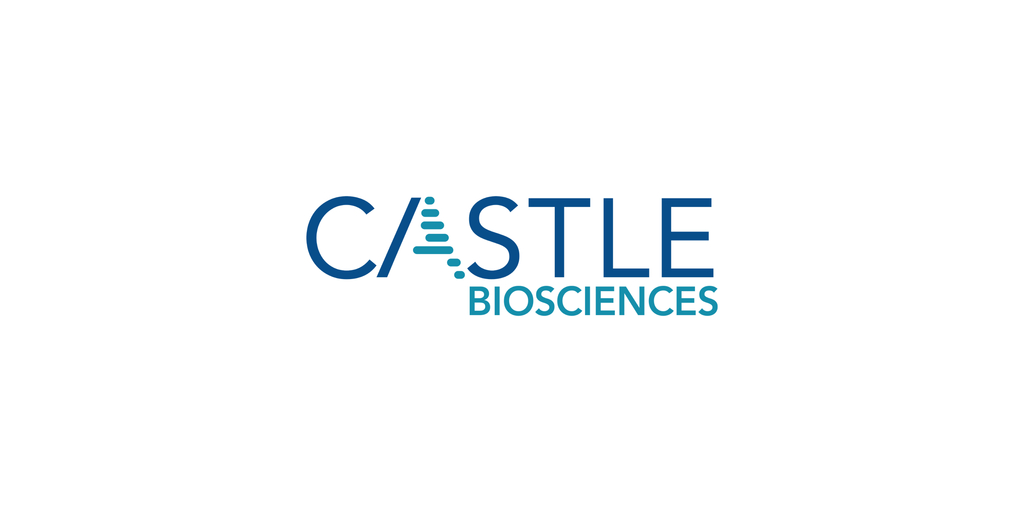FRIENDSWOOD, Texas--(BUSINESS WIRE)--$CSTL #2024SMRCongress--Castle Biosciences, Inc. (Nasdaq: CSTL), a company improving health through innovative tests that guide patient care, today announced that it will present new data related to its DecisionDx-Melanoma and DecisionDx®-UM tests for patients with cutaneous melanoma (CM) and uveal melanoma (UM), respectively, at the 21st International Congress of the Society for Melanoma Research (SMR), taking place Oct. 10-13, 2024, in New Orleans.


“In large prospective and retrospective studies, our DecisionDx-Melanoma test has been shown to provide clinical value above and beyond current staging paradigms and other tests currently available for patients with cutaneous melanoma,” said Derek Maetzold, president and chief executive officer of Castle Biosciences. “Clinical use studies have shown that clinicians act upon these results to improve risk-aligned treatment pathway decisions which are associated with improved outcomes.”
Details regarding Castle’s posters at SMR are included below. Posters will be available for viewing starting the evening of Thursday, Oct. 10, through the evening of Saturday, Oct. 12.
DecisionDx-Melanoma
- Poster title: In a prospective, multicenter study, the 31-GEP identified patients at increased risk of tumor recurrence and added significant prognostic value to AJCC staging
- Poster #: 40
- Summary: This study included 876 patients with Stage I-III CM from multiple centers who received DecisionDx-Melanoma testing as part of their clinical care. The data show DecisionDx-Melanoma stratified patients by their risk of recurrence and was a significant predictor of recurrence; patients with Class 1A (lowest risk) test results had significantly higher three-year recurrence-free survival than those with a Class 1B/2A (increased risk) or Class 2B (highest risk) test result (p<0.001). Importantly, the test added significant predictive value to American Joint Committee on Cancer (AJCC) staging, considered the standard of care in melanoma management. These findings provide evidence that use of the test with melanoma patients enables better risk-aligned care decisions, which have been shown to lead to improved patient outcomes.1,2
DecisionDx-UM
- Poster title: Confirmation of PRAME status as a risk modifier of 15-gene expression profile class in a large real-world population-based cohort of uveal melanoma patients
- Poster #: 134
About DecisionDx-Melanoma
DecisionDx-Melanoma is a gene expression profile risk stratification test. It is designed to inform two clinical questions in the management of cutaneous melanoma: a patient’s individual risk of sentinel lymph node positivity and a patient's personal risk of melanoma recurrence and/or metastasis. By integrating tumor biology with clinical and pathologic factors using a validated proprietary algorithm, DecisionDx-Melanoma is designed to provide a comprehensive and clinically actionable result to guide risk-aligned patient care. DecisionDx-Melanoma has been shown to be associated with improved patient survival and has been studied in more than 10,000 patient samples. DecisionDx-Melanoma’s clinical value is supported by more than 50 peer-reviewed and published studies, providing confidence in disease management plans that incorporate the test’s results. Through June 30, 2024, DecisionDx-Melanoma has been ordered more than 173,000 times for patients diagnosed with cutaneous melanoma. Learn more at www.CastleBiosciences.com.
About DecisionDx-UM
DecisionDx-UM is Castle Biosciences’ 15-gene expression profile (GEP) test that uses an individual patient’s tumor biology to predict individual risk of metastasis in patients with uveal melanoma (UM). DecisionDx-UM is the standard of care in the management of newly diagnosed UM in the majority of ocular oncology practices in the United States. Since 2009, the American Joint Committee on Cancer (AJCC; v7 and v8) Staging Manual for UM has specifically identified the GEP test as a prognostic factor that is recommended for collection as a part of clinical care. Further, the National Comprehensive Cancer Network (NCCN) guidelines for UM include the DecisionDx-UM test result as a prognostic method for determining risk of metastasis and recommended differential surveillance regimens based on a Class 1A, 1B and 2 result. DecisionDx-UM is currently the only prognostic test for UM that has been validated in prospective, multi-center studies, and it has been shown to be a superior predictor of metastasis compared to other prognostic factors, such as chromosome 3 status, mutational status, AJCC stage and cell type. It is estimated that nearly 8 in 10 patients diagnosed with UM in the United States receive the DecisionDx-UM test as part of their diagnostic workup. Learn more at www.CastleBiosciences.com.
About Castle Biosciences
Castle Biosciences (Nasdaq: CSTL) is a leading diagnostics company improving health through innovative tests that guide patient care. The Company aims to transform disease management by keeping people first: patients, clinicians, employees and investors.
Castle’s current portfolio consists of tests for skin cancers, Barrett’s esophagus, mental health conditions and uveal melanoma. Additionally, the Company has active research and development programs for tests in other diseases with high clinical need, including its test in development to help guide systemic therapy selection for patients with moderate-to-severe atopic dermatitis, psoriasis and related conditions. To learn more, please visit www.CastleBiosciences.com and connect with us on LinkedIn, Facebook, X and Instagram.
DecisionDx-Melanoma, DecisionDx-CMSeq, i31-SLNB, i31-ROR, DecisionDx-SCC, MyPath Melanoma, DiffDx-Melanoma, TissueCypher, IDgenetix, DecisionDx-UM, DecisionDx-PRAME and DecisionDx-UMSeq are trademarks of Castle Biosciences, Inc.
Forward-Looking Statements
This press release contains forward-looking statements within the meaning of Section 27A of the Securities Act of 1933, as amended, and Section 21E of the Securities Exchange Act of 1934, as amended, which are subject to the “safe harbor” created by those sections. These forward-looking statements include, but are not limited to, statements concerning: the ability of the DecisionDx family of innovative genomic tests to (i) provide clinical value above and beyond current staging paradigms and other tests currently available for patients with CM and (ii) enable better risk-aligned care decisions to lead to improved patient outcomes. The words “can,” “may” and similar expressions are intended to identify forward-looking statements, although not all forward-looking statements contain these identifying words. We may not actually achieve the plans, intentions or expectations disclosed in our forward-looking statements, and you should not place undue reliance on our forward-looking statements. Actual results or events could differ materially from the plans, intentions and expectations disclosed in the forward-looking statements that we make. These forward-looking statements involve risks and uncertainties that could cause our actual results to differ materially from those in the forward-looking statements, including, without limitation: subsequent study or trial results and findings may contradict earlier study or trial results and findings or may not support the results shown in this study, including with respect to the discussion of DecisionDx-Melanoma and DecisionDx-UM in this press release; actual application of our tests may not provide the aforementioned benefits to patients; and the risks set forth under the heading “Risk Factors” in our Annual Report on Form 10-K for the year ended December 31, 2023, our Quarterly Report on Form 10-Q for the quarter ended June 30, 2024, and in our other filings with the SEC. The forward-looking statements are applicable only as of the date on which they are made, and we do not assume any obligation to update any forward-looking statements, except as may be required by law.
- Bailey CN, Martin BJ, Petkov VI, et al. 31-Gene Expression Profile Testing in Cutaneous Melanoma and Survival Outcomes in a Population-Based Analysis: A SEER Collaboration. JCO Precis. Oncol. 2023; 7. doi: 10.1200/PO.23.00044
- Dhillon S, Duarte-Bateman D, Fowler G, et al. Routine imaging guided by a 31-gene expression profile assay results in earlier detection of melanoma with decreased metastatic tumor burden compared to patients without surveillance imaging studies. Arch Dermatol Res. 2023. https://doi.org/10.1007/s00403-023-02613-6.
Contacts
Investor Contact:
Camilla Zuckero
czuckero@castlebiosciences.com
Media Contact:
Allison Marshall
amarshall@castlebiosciences.com




